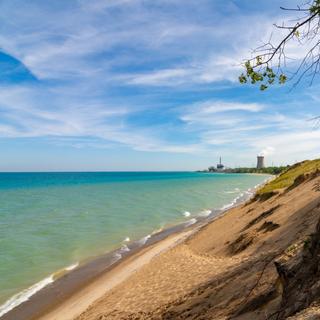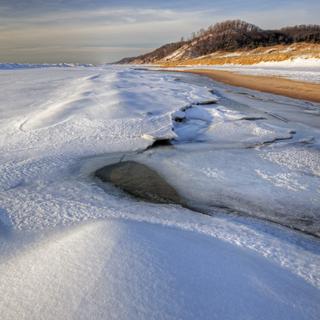Waukegan, IL weather and climate in 2025
Day
27 °C
Night
17 °C
Sea
20 °C
Precipitation
95 mm
in month
Rainy days
10 days
in month
Daylight
15 hours
average
Sunshine
10 hours
average
Humidity
71 %
Weather charts for Waukegan, IL
Find more destinations like this
Closest destinations for Waukegan, IL
Closest cities for Waukegan, IL
Weather overview for Waukegan, IL
Weather overview
Waukegan, located in the state of Illinois, experiences a range of weather conditions throughout the year. Certain variability exists with typically mild summers and cold, snowy winters. Average daytime temperatures peak at 27 °C (81 °F) in July, with the distinct coolness of -1 °C (31 °F) during January days. Precipitation is fairly distributed across the year, with some of the heaviest rainfalls occurring in spring averaging 104 mm (4.10 in) in August. Waukegan is also known for its windy conditions, often influenced by its proximity to Lake Michigan.
January weather
January in Waukegan heralds the brunt of winter's chill, with average nightly temperatures dropping to a freezing -9 °C (16 °F). Daytime isn't much of a respite, staying near the freezing mark. The heavens grant 43 mm (1.69 in) of precipitation with a likelihood of 10 days snowy days among them.
February weather
As February rolls in, Waukegan remains firmly in winter's grip with night temperatures still averaging -7 °C (19 °F). Breezes from Lake Michigan can carry a bite, with the wind speed averaging 5 m/s. Daytime temperatures begin a slow climb to 1 °C (35 °F), though winter's chill is still prevalent.
March weather
The promise of spring makes a tentative appearance in Waukegan during March, with temperatures gradually thawing to a daytime average of 7 °C (44 °F). Nights remain chilly at -2 °C (28 °F), and winds start to settle as the average wind speed ticks at 5 m/s.
April weather
April sees further warming in Waukegan, with the landscape blooming under an increased average of 7 hours of sunshine. Day temperatures now soar to 13 °C (56 °F), hinting at the coming solstice. The month also witnesses its fair share of rain, receiving about 87 mm (3.44 in) throughout.
May weather
The merry month of May offers a noticeable leap towards warmth, with average day temperatures reaching a pleasant 19 °C (66 °F). However, Waukegan's tendency for precipitation doesn't wane, as May showers contribute to the 97 mm (3.81 in) average rainfall.
June weather
June in Waukegan boasts the longest days of the year and with it, an abundance of sunshine that brings the average to a high of 25 °C (77 °F). It's a bright and lush season, though humidity starts to climb, averaging 68 %.
July weather
July marks the peak of summer in Waukegan, with the thermometer hitting an average daytime high of 27 °C (81 °F). This is coupled with a rise in humidity, which can make the air feel heavier than the actual temperature suggests.
August weather
As August arrives, the warmth lingers in Waukegan with an average daytime peak of 26 °C (79 °F). It's typically the wettest month, with rainfall totaling 104 mm (4.10 in) and ensuring that the vegetation remains verdant and lush.
September weather
September in Waukegan starts to hint at the coming autumn, with daylight waning and average temperatures beginning a gentle descent to 23 °C (73 °F) during the day, signifying a gradual change in the air.
October weather
The crispness of October embraces Waukegan, bringing a noticeable change with the average daytime temperature reaching a cooler 16 °C (61 °F). The wind picks up slightly to 4 m/s, ushering in the feel of the coming winter months.
November weather
November's chilliness settles into Waukegan, as the average daytime temperature takes a dip to 9 °C (48 °F), heralding the slow approach of winter. As daylight diminishes, so does the sunny disposition, with sunlight hours decreasing.
December weather
December announces the return of winter to Waukegan, with temperatures often hovering around 2 °C (35 °F) during the day. Cold nights are frequent, and the wind continues to play its role with an average speed of 5 m/s.
FAQs
How cold is Waukegan in January, should I layer up?
In January, Waukegan is quite cold with average daytime highs barely reaching -1 °C (31 °F). Layering is certainly advisable as temperatures can feel even colder with the wind.
Is February in Waukegan frigid, or is it warming up?
February in Waukegan remains cold with an average daytime temperature of 1 °C (35 °F). The city is still under the cloak of winter, and the weather is warming up at a glacial pace.
What kind of weather should I expect in Waukegan in March?
March in Waukegan is a transitional period where you can expect cool weather with an average high of 7 °C (44 °F), indicating the approach of milder spring conditions.
How warm does it get in Waukegan during April?
April in Waukegan brings a more comfortable climate as daytime temperatures rise to an average of 13 °C (56 °F), allowing for lighter clothing and more outdoor activities.
Does May in Waukegan feel like summer is on the way?
May certainly feels like the onset of summer in Waukegan with average daytime temperatures reaching 19 °C (66 °F), but nights can still be a bit brisk at an average of 9 °C (47 °F).
Is June in Waukegan ideal for outdoor activities?
Absolutely, with an average daily temperature of 25 °C (77 °F) and the longest sunshine hours, June is perfect for enjoying the outdoors in Waukegan.
Will I experience extreme heat in Waukegan in July?
You won't face extreme heat in Waukegan during July, but it is the warmest month with an average high of 27 °C (81 °F). The high humidity can enhance the sensation of warmth.
Are August days in Waukegan hot and sunny?
August days in Waukegan are generally hot with an average high of 26 °C (79 °F), though still comfortable enough for most outdoor summer activities under plentiful sunshine.
Does September in Waukegan feel like fall yet?
In Waukegan, September does carry the first whispers of fall with milder temperatures, less humidity, and the first signs of changing leaves.
Is October in Waukegan cool or is it an extension of summer?
October in Waukegan begins the transition to cooler weather, moving away from summer's warmth with a moderate daytime average of 16 °C (61 °F).
Does November in Waukegan get very cold?
November in Waukegan starts to get chilly with an average daytime high of only 9 °C (48 °F), indicating the impending winter season.
Is Waukegan very cold in December?
December does bring the cold to Waukegan with average daytime highs of just 2 °C (35 °F), and significantly lower temperatures at night.
We make the most from 40 years of historical weather data to predict the best weather conditions.
Deciding on where to go for a holiday is hard sometimes. Get inspired by the most popular destinations.
We aggregate data from combining multiple weather sources to ensure accuracy of the highest order.







